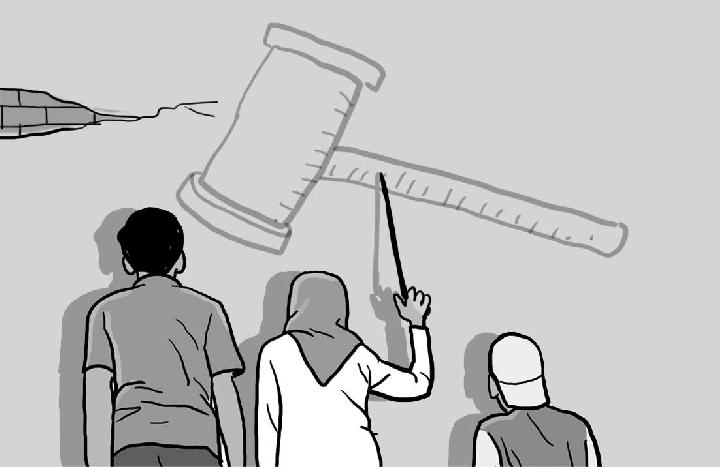
TEMPO.CO, Jakarta - On January 22, the House of Representatives (DPR) officially approved the 2020 National Priority Legislative Program, including four omnibus laws that will change the face of this country – once and for all. Without public participation, and even with an impression of secrecy, these bills are wrong from the outset.
Of these four planned omnibus laws, the job creation bill, the taxation and economic strengthening bill, the pharmacy bill and the state capital bill, only the contents of the first have begun to leak to the public.
Public concerns have arisen for two reasons. Firstly, the government has not involved all the stakeholders who will be impacted by these laws. Secondly, there are indications that the government wrongly diagnosed the roots of the fundamental problems that gave rise to the need for them.
The job creation bill is the first and most complex omnibus law. There are 1,244 articles in the 79 laws that will be changed when this legislation is passed at Senayan. From the deliberation process, a number of crucial questions have arisen around mining concessions, the use of forest areas, the time period of usage permits, environmental impact analyses and labor regulations.
These questions were all sparked by the secretive nature of the deliberations of this first bill. It is difficult to understand why the government is insisting on keeping the contents of the omnibus law secret before the document is handed over to the DPR this week. Rather than easing the passage of this bill, these secretive deliberations will lead to public doubts, especially since the Economics Ministry has given the Indonesian Chamber of Commerce the authority to filter all of the regulations that might cause losses for businesses. When the player becomes the referee, the result will be fundamentally flawed.
There is nothing wrong with President Joko Widodo’s plan to tidy up the regulations and do away with overlapping ones. But the process of drawing these up must not only favor a small number of tycoons – who are close to those in power. If this happens, the economy that is built will be unbalanced and weak because it will be controlled by cronies and rent-seekers. It is likely the president will be accused of simply returning favors to the donors that helped him during the last presidential election campaign.
The second problem is the substance of this clean sweep legislation. The government always emphasizes that this omnibus law is needed to improve the investment climate and to make it easier to recruit employees. These are both seen as vital to spurring on economic growth to be higher than the current annual level of 5 percent.
The problem is, the government gives the impression of blaming regulations on the environmental and forestry sector for hampering investment. The fact is these regulations were drawn up to protect the ecosystem so that the exploitation of natural resources can be sustainable. Ignoring the environment for the interests of economic growth means going against the global trend of increasing concern about the climate crisis.
Moreover, what makes investors reluctant to come to Indonesia is not simply overlapping regulations, but the inconsistency of the way regulations are implemented on the ground. There is considerable confusion, for example, in obtaining land for mining and plantations. The permit process is rife with collusion and corruption, from the regional level all the way to the central government.
Therefore, the president should fire officials who take bribes, not cut back the regulations. Unfortunately, the Corruption Eradication Commission, which has long fought against graft, has been emasculated. If this policy is continued, dramatic changes to regulations in the interests of tycoons will whitewash all of the wrongdoing that has long taken place in the forestry and mining sectors. The public loss will only grow.
There are also major problems with labor regulations. Only listening to businesses, without hearing inputs from workers, will exacerbate conflicts between the two. Investors have long complained about labor regulations in Indonesia, but this problem must be solved by listening to both sides – the unions and business associations, both of whom have their own interests.
As a result, there is a fundamental misdiagnosis in the drawing up of this omnibus law. If this is not addressed, the government and the DPR could give the wrong recipe to the public. Instead of turning Indonesia into a developed nation, we could be struck by a protracted crisis.
Read the Complete Story in this Week's Edition of Tempo English Magazine























